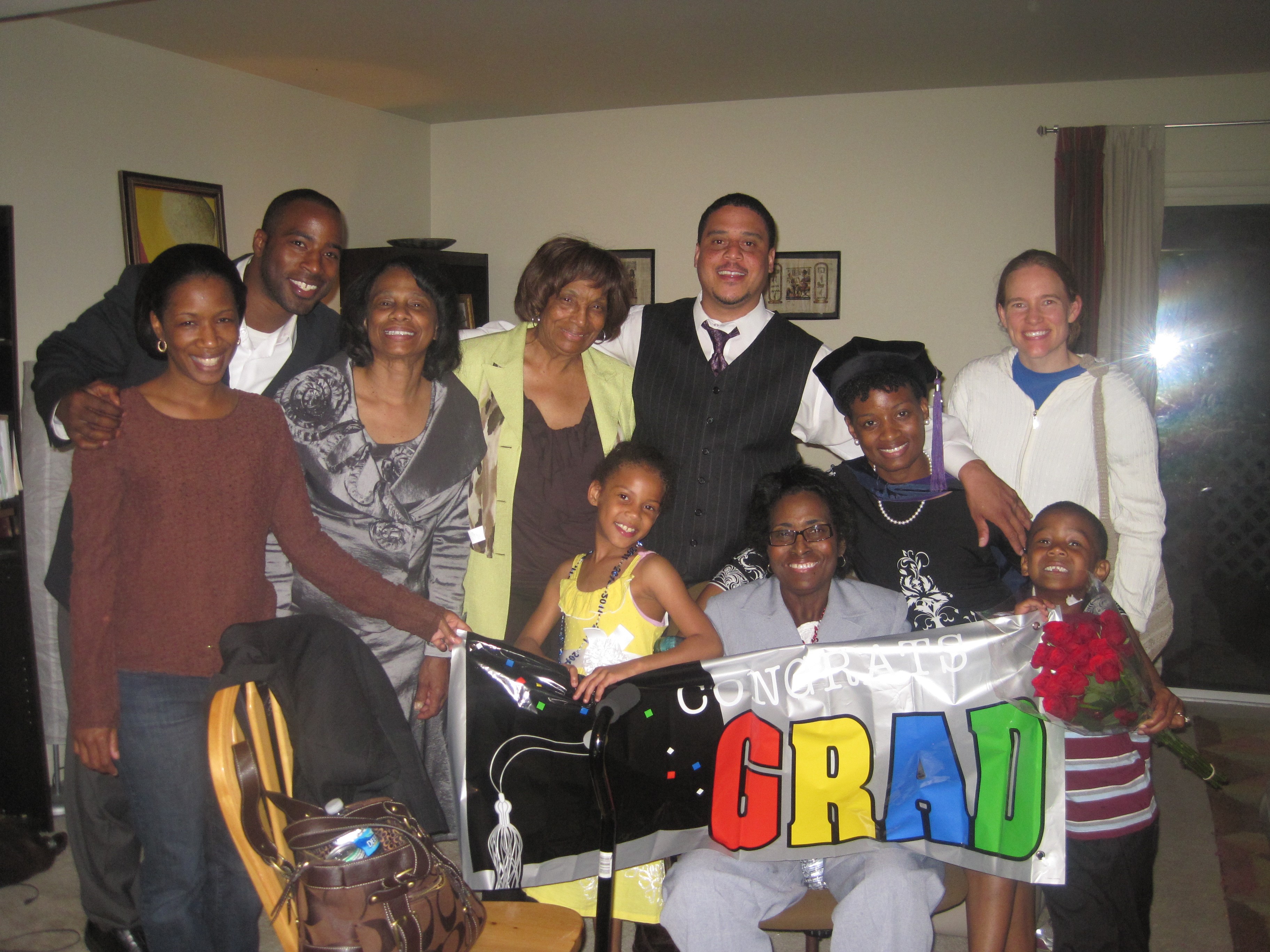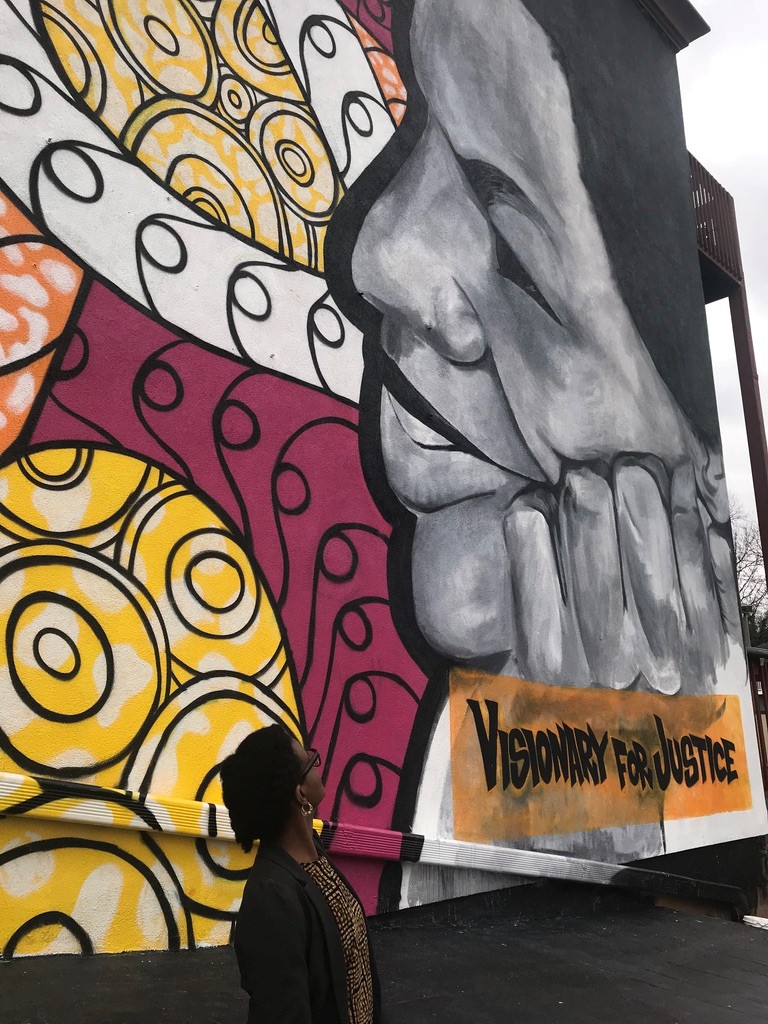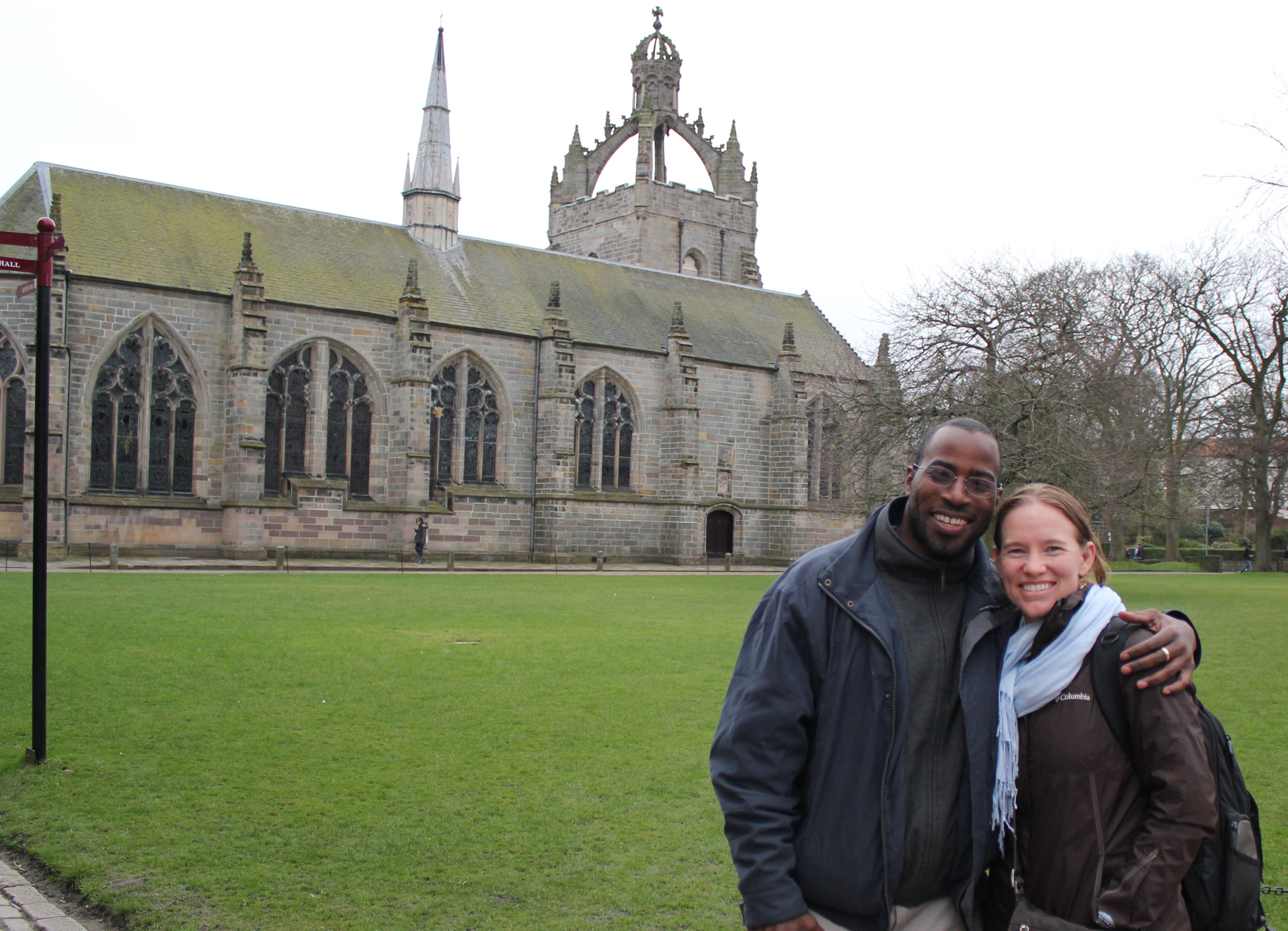A Letter from Shelvis and Nancy Smith-Mather, serving in South Sudan
September 2019
Write to Shelvis Smith-Mather
Write to Nancy Smith-Mather
Individuals: Give online to E200316 for Shelvis and Nancy’s sending and support
Individuals: Give online to 052032 for RECONCILE
Congregations: Give to D507554 for Shelvis and Nancy’s sending and support
Churches are asked to send donations through your congregation’s normal receiving site (this is usually your presbytery)
Her childhood memories of singing and digging alongside her siblings come alive again as we stare at the same fields whose soil she tended six decades ago, fields that might still be able to recognize her voice.
“Big machines make it so people do not dig like that anymore,” Aunt Juanita tells my three kids, who are buckled in car seats behind her in the minivan. “Lots of people’s hard work, back in those days, made it possible for these big farms to be like this today.”
“Aunt Juanita,” I call from the back. “In Uganda and South Sudan, people still farm using hoes.”
“Really?” She gasps, greatly surprised.
Juanita is the oldest sister of Shelvis’ mother, Shirley. Our children never met their grandmother Shirley, who died in 2011. So, while in Pelham, Georgia, for the Fourth of July, we put the kids in a minivan, invited two of her sisters to come with us, and took a tour of Shirley’s early years.
As sharecroppers, Shirley’s family home stood in the midst of the unending rows of green presently captivating our gaze. They farmed peanuts, cotton and tobacco, giving 50% of their produce to the owner of the land. That particular childhood home no longer exists beyond the remembrance of the children whose tired bodies once dreamt there at night. Only long, curved, silver irrigation machines stretch taller than the peanut plants this hot summer day.
“Why don’t they just use watering cans?” 6-year-old Jordan wonders out loud.
“See the wheels on those machines? They can roll across the fields to water the plants. It makes it faster and a lot easier than watering cans,” I explain.
Next on the history tour, we stop at Aunt Juanita’s first school. During her elementary years, the schools in Pelham were segregated by race. So, at 6 years old, she joined the school for “colored” children. By the time Shirley could attend, there was a new school building where Shirley joined the first integrated school. Shirley would later graduate as salutatorian of her integrated high school.
The youngest of eight children, Shirley became the first in her family to finish college. Later, she earned a master’s degree. Before she journeyed to her eternal home, she completed her coursework for her PhD, but cancer stopped her from completing the dissertation. In her role as mother and professional educator, she continuously emphasized the importance of education. Both Shelvis and his sister embraced the message wholeheartedly.
While in college, Shirley fell in love with Willie Smith, Shelvis’ father. Willie grew up in a family of pastors and civil rights activists. His siblings still laugh reminiscing about the moment their mother recognized Willie’s sister’s face on the evening news. Ruby Doris Smith was caught on camera as police officers pushed her into the back of a paddy wagon. Their mother was horrified, yet Ruby Doris Smith-Robinson became a hero. A huge mural on Martin Luther King Jr. Drive in Atlanta honors her legacy as a Freedom Rider and the only female member of the Student Non-Violent Coordinating Committee’s (SNCC) executive committee.From his mother’s story, Shelvis identified the power of education to overcome poverty. From his father’s story, he witnessed the church as an instrument for change, justice and authentic reconciliation.
God was up to something. God took a young African American man from a family of sharecroppers, pastors and reconcilers, the son of two educators, then called to his side a woman of a different race but with the same passion (that’s me), and placed this interracial, American couple in a distant land called South Sudan.
God was up to something.
For the last decade, we have seen how the church and education play a critical role in reconciliation in East Africa. At present, I coordinate an education development and peacebuilding project, and Shelvis serves as principal of the RECONCILE Peace Institute.
One of the objectives of RECONCILE is “to conduct research and document cultural values that promote tolerance, reconciliation and coexistence among people of different cultural backgrounds.” Towards that end, Shelvis began to interview RECONCILE’s staff, board members and program participants, putting on paper the wisdom embodied by fearless grassroots peacebuilders. He quickly realized the stories he heard firsthand should be shared with a wider audience. The people he met, many unknown on the world stage, have something to teach all of us about transforming hearts and halting violent conflict.
With this inspiration as well as the encouragement of the PC(USA), RCA and RECONCILE, Shelvis submitted an application to Oxford University. He proposed researching the role of the church in reconciliation, using South Sudan as a case study. Lord willing, the insight gained from such an initiative will highlight the unique phenomena occurring in South Sudan and offer guidance to other communities plagued by division and war.
We are humbled to share that God opened the door for Shelvis to research at Oxford. A team of scholars from Oxford’s Schools of Anthropology and Theology as well the Africa Studies Centre will help guide the research. Peacebuilders in South Sudan will be the main contributors, ultimately determining the direction of the project, and gaining an opportunity to share their best practices with peacebuilders across the globe.
While Shelvis focuses on research and developing peacebuilding curricula for RECONCILE, I will continue to coordinate the South Sudan Education and Peacebuilding Project (SSEPP). As such, our family plans to spend the next four years moving back and forth between South Sudan and Oxford.
Many details still need to be worked through, and at times the unknowns feel overwhelming, but our hearts calm when we remember that God is up to something.
With your partnership, we have been able to serve in East Africa for more than 10 years, and with the upcoming transitions, we need your partnership now more than ever. Please join us for this new chapter as we continue to lift up what God is doing through our continued work in South Sudan and this new initiative at Oxford University. We are deeply grateful for your partnership in ministry.
Nancy and Shelvis Smith-Mather
![]() You may freely reuse and distribute this article in its entirety for non-commercial purposes in any medium. Please include author attribution, photography credits, and a link to the original article. This work is licensed under a Creative Commons Attribution-NonCommercial-NoDeratives 4.0 International License.
You may freely reuse and distribute this article in its entirety for non-commercial purposes in any medium. Please include author attribution, photography credits, and a link to the original article. This work is licensed under a Creative Commons Attribution-NonCommercial-NoDeratives 4.0 International License.



